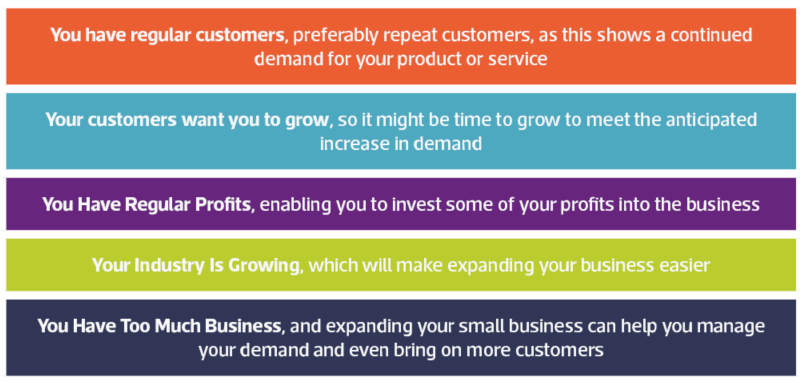Enterprise means more than just the ability to become an entrepreneur. It is that quality that gives an individual a positive outlook, an ability to see the glass as half full rather than half empty, and is a valuable attribute for the whole of life. (Young, 2014)
What is Enterprise?
Enterprise ‘represents that quality of boldness along with that ability to take calculated risks in undertaking an initiative that creates value’. Enterprise could simply mean a ‘business’ or a personal trait as can be found in an ‘entrepreneur’. In the context of leadership, the enterprise can be considered as ‘a leader’s effectiveness at meeting their individual objective, contributing to and leveraging performance of other units or teams, and leading their team to do the same’. (CEB, 2015)
The entrepreneurial leader
Today’s organisations operate in a VUCA (Volatile, Uncertain, Complex, Ambiguous) business environment characterised by increasing globalisation, technology disruption, shrinking time zones, and global workforces.
This results in:
- Complex decision-making processes with an increased number of stakeholders
- A wider scope of responsibility with teams in multiple locations
- A mismatch in the pace of business transformation with technology adoption
- The need for more emotionally intelligent and empathic leaders in the face of increasing social media presence
Entrepreneurial leaders are particularly good at leading complex, uncertain and difficult problem situations, and teams with entrepreneurial leaders will tend to be more adaptable and innovative.
What makes an entrepreneurial leader?
Research by Ernst & Young points to certain core traits in an entrepreneurial leader (Ernst & Young, 2011):
- An opportunistic mindset. Fernando Turner Dávila, President of Mexico’s National Association of Independent Businessmen and Chairman of Katcon articulates this trait quite succinctly, “Entrepreneurs see opportunities and believe that they can find ways to profit from them”.
- An ‘accepting’ attitude to risk failure, including learning from failures and moving on. Cultural views of failure (celebration or stigma) influence attitude.
- Expanded internal locus of control, making that shift from a ‘victim’ mindset, externalising blame to a ‘creator’ mindset, to one of taking ownership.
- Six action-oriented behaviours: passion; tenacity; team player; develop culture, values and success; innovation; building an ecosystem of resources.
Entrepreneurial mindset
The entrepreneurial mindset is about a certain way of thinking - it is about the way in which you approach challenges and mistakes. It is about an inherent need to improve your skill set and to try and try again.’ (Asli, 2018)
Asli (2018) suggests six ways to develop an entrepreneurial mindset:
- Revisit your vision on a daily basis: make an effort to set aside a specific time every single day to focus upon your vision and your goals
- Put Yourself In Challenging Situations: If you want to cultivate an entrepreneurial mindset, you have to embrace challenges. You have to seek them out
- Read On A Daily Basis: Learn new skills. Devour books about successful entrepreneurs
- Approach Problems From All Sides: Simply put, the entrepreneurial mindset is about thinking differently than the rest
- Always Be In Motion: Provide Value: Entrepreneurs are on a quest to help the customer in some way and to continue to make their service better and better. They identify problems and solve them
- Above all, the entrepreneurial mindset is about being committed to your vision regardless of the challenges and obstacles along the way
You can start to cultivate an entrepreneurial mindset by asking the following questions about yourself:
- What are your goals, what motivates you?
- What are your personal values? Consider taking the survey at https://www.valuescentre.com/our-products/products-individuals/personal-values-assessment-pva to find out what is important to you
- What are your top strengths? Consider taking the survey at https://www.viacharacter.org/survey/account/register to identify your character strengths
- How resilient are you? Consider taking this questionnaire to identify your personal resilience and to start developing your resilience https://www.robertsoncooper.com/register/new?i-resilience
- How do you cope with adversity and failures?
Growing Your Own Business
Many successful entrepreneurs who have started their own business will want at some point to grow their business. There are numerous networks, agencies and organisations that will provide advice to grow your business, but the entrepreneur must decide if this is something they really want to do and if the time is right.
Kappel (2017) identifies five ways to tell if you are ready for business growth:

Intuition may play a part in deciding whether or not to grow your business, but Podolsky (2019) suggests that it is critical to rely on objective criteria to back up your intuition when deciding when it is time to grow.

References
Asli, A. (2018). 6 Tips For Growing With An Entrepreneurial Mindset. Retrieved from www.forbes.com/sites/theyec/2018/05/25/6-tips-for-growing-with-an-entrepreneurial-mindset/#adbaef01343e
CEB (2015). Creating Enterprise Leaders: Excerpt of Findings. CEB Corporate Leadership Council. Retrieved from https://www.ldc.govt.nz/assets/Uploads/CLC-Creating-Enterprise-Leaders-2016.pdf
Kappel, M. (2017). 5 Ways To Tell If You Are Ready To Grow Your Business www.forbes.com/sites/mikekappel/2017/09/06/5-ways-to-tell-if-you-are-ready-to-grow-your-business/#75f24cdb53f8
Pedolsky (2019). Five Signs You’re Ready To Grow Your Small Business www.forbes.com/sites/theyec/2019/06/07/five-signs-youre-ready-to-grow-your-small-business/#1844abb15b27
Pinelli, M. T. (2011). Nature or nurture? Decoding the DNA of the entrepreneur. EY Publication vw LUAssetts. Retrieved from https://www.ey.com/Publication/vwLUAssets/ey-nature-or-nurture/$FILE/ey-nature-or-nurture.pdf
Young, D. (2014). Enterprise For All: the relevance of enterprise in education © Crown copyright 2014
Are you an enterprising leader? Test yourself with our Scorecard.
If you’re a member, you can test yourself on Enterprise and see if you meet the standard.
Spotlights
Further Resources
From the Blog







